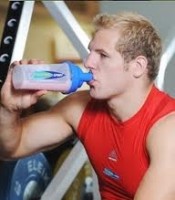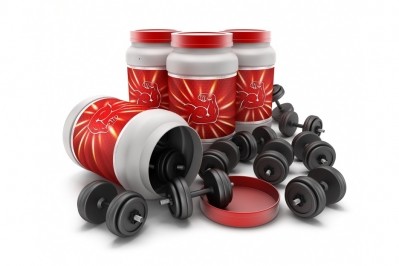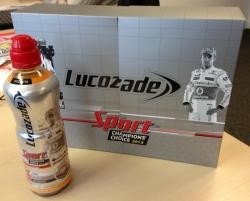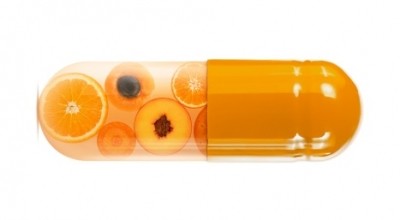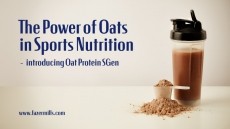BMJ slams sports nutrition & EFSA; Glaxo defends 40 years of science
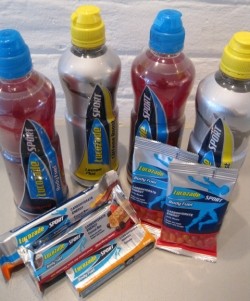
They also took a swipe at the normally uber-strict European Food Safety Authority (EFSA) for being lax in its assessment and authorisation of claims.
Slaughterfest
The non-efficacious allegations that stem from an investigation of 431 performance-enhancing claims in adverts for 104 different sports products will feature on Panorama tonight, in what Martin Cheifetz, vice-chair of the European Specialist Sports Nutrition Alliance (ESSNA) and managing director of Weider Publishing, said would be a “slaughterfest for industry”.
The woe is set to be compounded with the UK Medicines and Healthcare products Regulatory Agency (MHRA) telling us it is preparing to go public with its latest round of investigations that have highlighted breaches in at least 80 sports products containing, “dangerous steroids, stimulants and hormones”.
Look here for more on that tomorrow.
40 years, 85 studies
Responding to the accusations that protein shakes and sports drink performance claims were based on “very meagre” research, Glaxo pointed to more than 40 years of clinical research and 85 studies that had been sufficient to win EFSA claims in the EU and beyond for its product Lucozade Sport.
“We take our responsibilities to consumers very seriously,” said Maria Potter, communications director at Consumer Healthcare Great Britain & Ireland.
“Consumers trust the quality of our products, the science behind our claims and the benefits that they themselves feel when they use them. We do not promote Lucozade Sport to children under 16, we label contents clearly, and we are careful to focus our marketing on encouraging participation in sport and supporting those who exercise.”
“We will always listen carefully to consumer feedback and the views of the scientific community, including those that might disagree with our claims. We would, of course, be happy to meet with the BMJ and the Centre for Evidence based Medicine [at Oxford] to understand their position.”
Dark day for GSK...
Cheifetz, who looks after the European activities of sports titles like Muscle and Fitness and Flex, wondered about the motivation of a government broadcaster and respected medical journal attacking a sector that was in the business of promoting health.
“If you throw in the VAT (value-added tax) issues and the problems Glaxo has had with multi-billion dollar fines for the practices of its pharma arm, this is a very dark day for them and the sports nutrition industry. This seems a case of selective science to me as there is a wealth of science that shows the opposite of these findings.”
The British Soft Drinks Association (BSDA) said sports drinks encouraged people to exercise more, and were designed to boost performance using, "the latest scientific evidence and medical knowledge”.
“It is well established that one of the factors that can help sporting performance is drinking the right amount of the right kind of drink, and there is a range of sports drinks available which are designed to meet the varying requirements of different kinds of exercise,” said media director, Richard Laming.
He also noted such products carried nutritional information on the label, “including the calorie content.”
He pointed to EFSA opinions linking carbohydrate-electrolyte solutions and, “reduction in rated perceived exertion/effort during exercise” and “maintenance of endurance performance”.
Research flaws
Writing in the BMJ, the researchers pointed to flaws in the 106 studies they assessed which had been sent to them by Glaxo, including:
- Small sample sizes
- Poor quality surrogate outcomes
- Poor quality trial design including badly blinded, or non-blinded studies
- Data dredging using pre-defined outcome measures
- Biological outcomes that do not necessarily tally with improved performance
- Inappropriate use of relative measures
- Pre-study nutritional input manipulation
- Changes in environmental factors – ie heat-cold
The “misleading messages" this science backs, said Deborah Cohen, BMJ investigations editor, "filter down to everyday health advice by company-sponsored scientists who advise high-profile sports bodies.”
“For instance, fear about the dangers of dehydration has become gospel and now influences what and how we drink when we exercise. It’s a triumph of marketing over science.”
Less sugar than soft drinks and juices
Glaxo, along with the Maxinutrition sports nutrition specialist it acquired last year, defended the efficacy of its offerings and messaging, along with sugar content that has also been criticised.
“[Lucozade Sport] is formulated to help replace salts and minerals lost through sweating and includes a mix of different carbohydrates, the levels of which are designed to replenish our fuel reserves during and after exercise,” Potter said.
“These sugars are not included to sweeten or improve the drink’s taste. Far from being an excessive amount, there is actually much less sugar in Lucozade Sport than many soft drinks and less than many fruit juices.”
It said 15-year-old Maxinutrition had, “helped to shape the sports nutrition industry and its products - Maximuscle, Maxifuel and Maxitone - are designed for people taking part in sports and exercise, and are trusted by elite athletes, professional sports teams and governing bodies.”
The BMJ article, ‘The truth about sports drinks’ can be found here.
